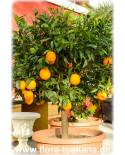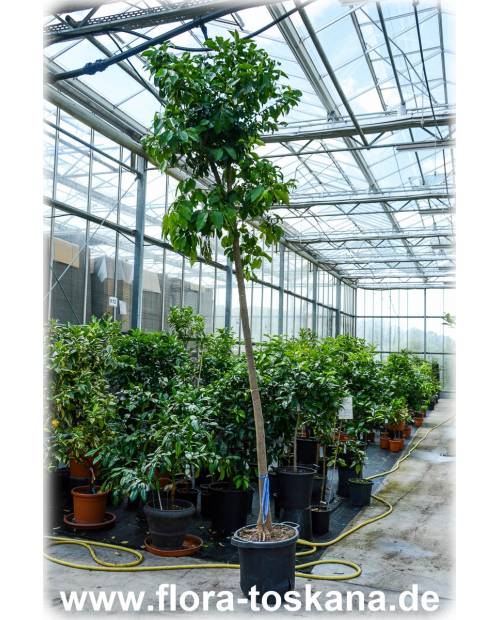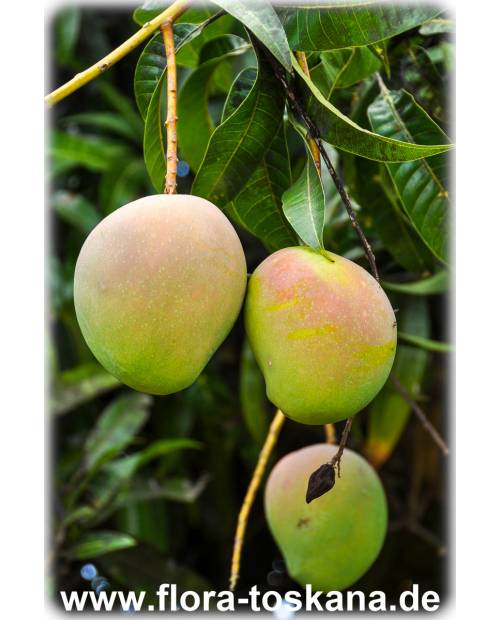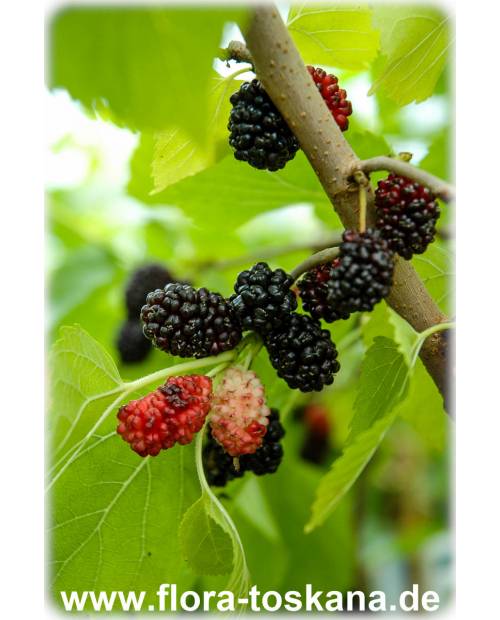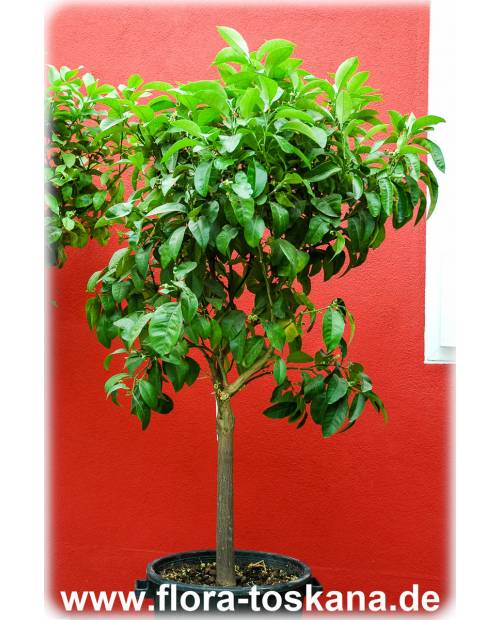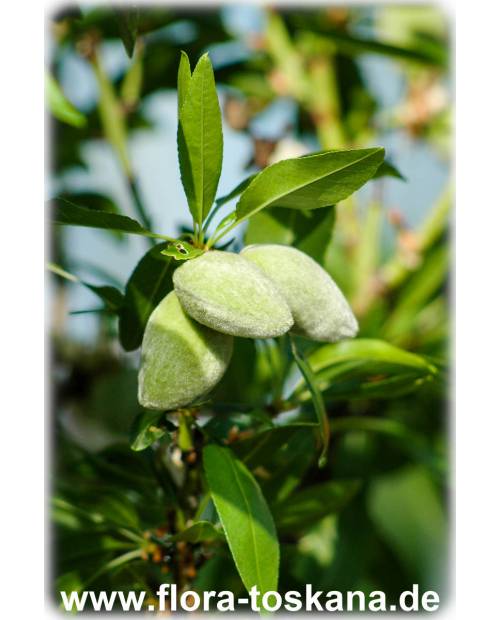Citrus sinensis 'Navel' XXL - Navel Orange
Varieties such as 'Thompson Navel', 'Washington Navel' or 'Navelina' are typical representatives of the navel oranges (Citrus sinensis) with a small secondary fruit embedded at the base of the main fruit – hence the name 'navel'. The abundant fruit of these orange trees tastes sweet, is rich in juice and very easy to peel: Ideal for snacking directly from the tree!
‘Washington Navel’ oranges probably arrived in California from Brazil in 1873. Its growth is, as is typical for oranges, compact, its leaves are dark green with a narrow leaf lobe. The flowers show mainly in early summer and reach a size of 2-3 cm. They are white and intensely fragrant. Characteristic for the about 10 cm large ‘Washington Navel’ fruit is its ‘navel’ at the base of the fruit. It is formed by a small secondary fruit that is embedded into the larger fruit. If you cut the fruit open, you can see this 'daughter fruit' as a whole circle of fruit segments. ‘Washington Navel’ oranges are seedless and easy to peel. The fruit segments can be easily separated from each other, making them very popular for direct consumption. In addition, they have a well-balanced sugar-acid ratio. Like all oranges, ‘Washington Navel’ have no problems with cooler temperatures and can be placed outside from April to October, which keeps them vigorous and pest-free.
![]() Quality: intensely fragrant & many flowers; edible & decorative fruits that hang on the tree for a long time; evergreen & glossy & fragrant leaves; compact crown; thornless
Quality: intensely fragrant & many flowers; edible & decorative fruits that hang on the tree for a long time; evergreen & glossy & fragrant leaves; compact crown; thornless
![]() Use: in pots from April outside on balcony, terrace and in the garden - during winter in a winter garden or winter quarter; all year round in a heated conservatory or bright room
Use: in pots from April outside on balcony, terrace and in the garden - during winter in a winter garden or winter quarter; all year round in a heated conservatory or bright room
![]() Note: All Flora Toskana citrus varieties are GRAFTED. Advantages: Flowering and fruiting from the smallest size (harvest in the first year). Robust roots that forgive care mistakes and ensure longevity. Varietal identity with the highest fruit quality and quantity.
Note: All Flora Toskana citrus varieties are GRAFTED. Advantages: Flowering and fruiting from the smallest size (harvest in the first year). Robust roots that forgive care mistakes and ensure longevity. Varietal identity with the highest fruit quality and quantity.
Data sheet
- Family
- Rutaceae
- Origin
- Asien (mediterran)
- Flowering period
- Blooming several times
- Color of flowers
- White
- Fruits
- Edible fruits
- Fragrance
- Fragrant flowers
- Growth
- Tree or shrub
- Location
- Sunny
- winter temperature
- 8 (±5)°C
- Minimum temperature
- 0 °C
- Hardiness Zones
- 9
- Height
- 2,5 - 3 m
Customers who bought this product also bought:


